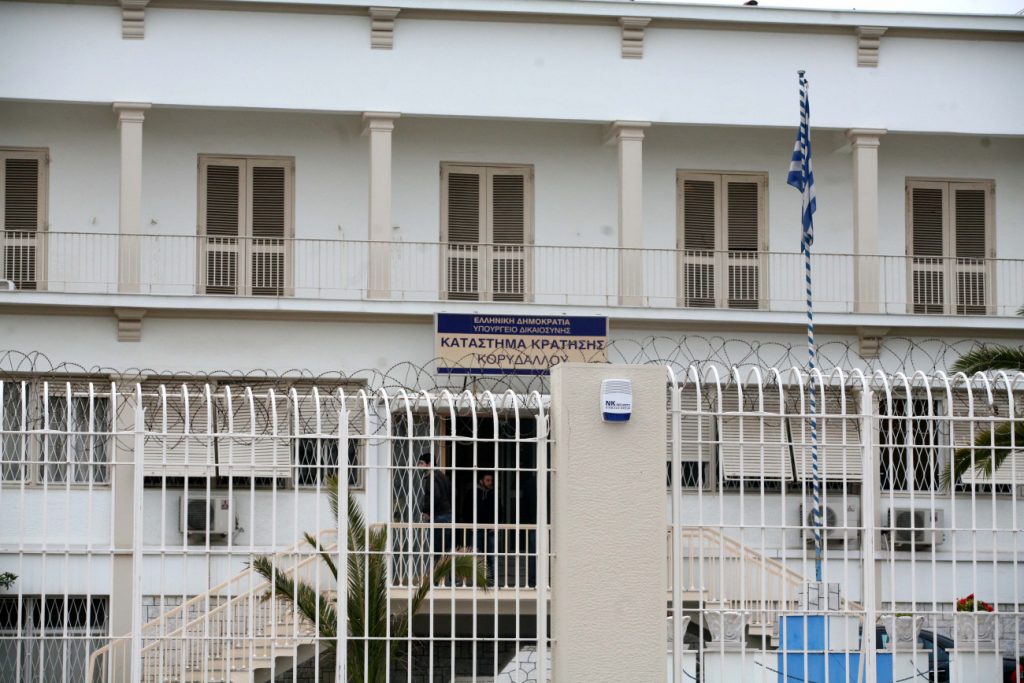More and more shocking details are being revealing by in.gr about the activities of the criminal organizations that were raking in huge amounts of cash from the trafficking of drugs, namely hashish and cocaine, and in which AEK Athens hooligans were involved.
The fact that a criminal organization with AEK hooligans among its leaders as well as in its rank and file, has been operating under the government’s nose for at least three years, despite their supposed crackdown on hooliganism, raises serious questions about the effectiveness of these measures. It is imperative that the government provide a clear and convincing explanation for why these measures have failed to prevent such a serious breach of public order. Because it looks like the hooligans are going about their business unchecked and undisturbed, using technology to conduct their criminal activity ever more effectively.
It is indicative that some of those accused are also involved in attempted murder and manslaughter.
As the crime reporter of the TA NEA and TO VIMA newspapers, Vassilis Lambropoulos, has revealed, 21 people in all are included in the case file drawn up by the Narcotics Division. It is worth noting that dozens of individuals who were involved in the criminal organizations in more or less central roles remain unidentified.
The case file stresses that the members of the labyrinthine network acted rationally and on the basis of a plan rather than opportunistically. They operated as a criminal network whose individual cells worked together to exploit opportunities, with each member allotted a particular role and responsible for specific parts of a carefully formulated modus operandi.
The labyrinthine network – Four criminal organizations
Four criminal organizations were involved in the labyrinthine drug trafficking network, with one playing a leading role. As the evidence in the case file shows, the leaders of the main criminal organization are members of AEK ultras.
The Narcotics Division has been investigating the activities of the four organizations for three years.
The intricate criminal network was involved in the purchase and sale of significant quantities of cocaine and cannabis across Europe, including in Greece. The drugs were mainly imported from Spain and Albania.
The members of the criminal network were responsible for purchasing, moving and getting the drugs into Greece. They would then launder their illegal profits through legal businesses owned on paper by family members, allowing those directly involved in the criminal activities to remain under the radar.
Several key members of the criminal network have long criminal records, with extensive involvement in both narcotics cases and incidents of fan violence.
They have been accused of causing and participating in incidents both inside and outside football grounds and fan associations, as well as mugging the fans of rival teams.
How they communicated – The encrypted messages
The Greek police authorities used information that first came to the attention of the police and judicial authorities in France, the Netherlands and Belgium.
With the support of Eurojust and Europol, these international authorities set up investigation and analysis teams. Having gained access to a trove of encrypted conversations, they subsequently shared information on the criminal activity they uncovered with authorities in every European state with a view to identifying the individuals involved and mentioned in the communications.
The information related to data exchanged by means of messages encrypted using two smartphone apps and stored on servers seized in France.
The very expensive EncroChat and Sky ECC apps
EncroChat and Sky ECC, the names under which the two apps were marketed, enabled members of the criminal network to communicate without using regular apps like Viber, WhatsApp or Telegram.
EncroChat was the first app to be seized, and open sources on the internet show that 90% of its subscribers/users were criminals. In addition to text messages, users of the app could also exchange photos.
Users had to pay €1,000 for a modified smartphone, and there was a six-monthly subscription of €1,500 on top of that.
Sky ECC would modify the phones and install their app on them. Each device had a unique PIN code. The app operated in stealth mode and only the user knew it was present on their smartphone.
Through Sky ECC, the users of the modified telephones were able to exchange encrypted messages which would “self-destruct” after a certain period of time specified by the user, while it was usually necessary to solve a specific calculation set by the user on the telephone’s calculator to enter the application.
Users were able to exchange text and voice messages as well as photos, and could participate in group chats (chatgoups) with more than two people. The cost per device ranged from EUR 1,000 to EUR 1,500.
Aliases, nicknames and passwords
Even when they were talking on the costly encrypted high-security applications which the consumer market had never even heard of and on which they went by code names, members of the criminal network used their own aliases or nicknames.
They also used code words such as “papers” to mean money, “ko” or “snow” or “white” for cocaine, and “hz” / “alb” / “sku” / “amnesia” or “black” to mean raw -skunk haze cannabis.
The main criminal organization: 7.2 million euros in profits in one year
Between March 2020 and March 2021, the main criminal organization, which had four levels of operation, carried out 68 illegal acts, while it is estimated that its profits for the period were as high as 7.2 million euros.
The two leaders of the organization – both of them members of violent AEK fan groups – were low-profile and ran a car rental company on Syngrou, which was registered to other members of their family.
The company had 50 cars and 18 motorcycles at its disposal. The members of the criminal organization used them as a cover for their illegal activities.
The company on Syngrou has links to a similar company on Mykonos.
One of the two leaders of the main criminal organization was the similarly low-profile owner of a grill in Agios Dimitrios.
The restaurant was legally owned by his brother and another person, who, according to the case file, is also a member of an AEK Athens ultra group.

Preferential treatment in Korydallos prison
One of the two leaders of the main criminal organization was in prison between 2018 and 2020.
He had been imprisoned for leading a criminal organization that trafficked drugs in Attica and Mykonos. However, his imprisonment did not stop his criminal activities, as he continued to coordinate drug deals from his cell using the encrypted applications.
In messages exchanged with another member of the criminal network in prison in France, he described the privileges he enjoyed in Korydallos jail.
He had a mobile phone, a smart TV and a wireless internet router.
One of the leaders of the main criminal organization referred to the good relations he had with the prison officers and how, with their help, he was able to smuggle mobile phones into the prison.
According to him, he knew a sergeant and a guard from when he was active in Mykonos, and the guard would sometimes use cocaine during his night shifts.
“He’s sniffing a rail,” was the expression he used.
In fact, as stated in the case file, he complained that life in the prison had been better two years earlier, when prisoners stayed up late drinking and some even enjoyed the companionship of women the sergeant would smuggle in.
A life of luxury
The case file stresses that the investigation and analysis of the evidence consisting of hundreds of thousands of encrypted messages make it clear that the key members of the criminal network led a life of luxury.
They drove expensive vehicles, which they would often change or lease, lived in expensive homes, and frequented Athens’ finest and most expensive restaurants. They would also travel to expensive destinations both in Greece, where they preferred Mykonos, and abroad. All this time, their only source of income was from their criminal involvement in the trafficking of drugs.
The murdered kingpin – And the attempted murder
According to the case file, one of the leading members of the criminal network—the leader of one of the four constituent criminal organizations—was murdered in Albania in 2022 when a bomb was planted in his car.
He and another of the leaders of the criminal organisation, had been actively involved in the attempted revenge killing of an Albanian national in 2021.
It was one of the leaders of the main criminal organization who provided the murdered leader with information about the movements of the Albanian national, and it was the same man who took receipt of a sniper-type weapon with a telescopic sight on the murdered man’s behalf, by means unknown. He also sent him the photograph that was given to the men paid to carry out the hit to the hotel where they were preparing their plan of action.
The gun was mounted on a balcony overlooking a square which the victim frequented, its sights set for a distance of 100 meters, but the victim did not come within range.
As stated in the case file, the attempt to kill the Albanian national in question continued with the hiring of another hit man.
Mugging rival fans, attacks on associations, the incidents at the Greek Cup Final at the Panthessaliko ground
As mentioned above, most members of the criminal organizations—and the leaders, in particular—had long criminal records.
They reveal that the criminals have been arrested for and charged with the same offenses—mainly the possession and trafficking of drugs, illegal possession of weapons, violation of sports legislation, theft-robbery, etc.—by various police services.
Both of the leaders of the main criminal organization were AEK football hooligans.
One of them participated in the mugging of rival fans after matches, during which the victims were often stabbed—usually in their buttocks, as the case file states.
The individual was identified as the perpetrator of the attack in 2016 in which an Atromitos fan was stabbed in the abdomen.
The other leader of the main criminal organization was involved in the infamous incidents during the Greek Cup Final between AEK and PAOK at the Panthessaliko Stadium, Volos, in 2017.
Another leading member of the criminal network, and the leader of one of the four criminal organizations, was arrested after an attack on fans at the Koropi toll post in 2016.
He, along with two other members of the criminal network, was arrested in 2018 for entering an apartment in Kiato that was due to become the offices of a PAOK fans’ association and attacking three people inside.
The dossier on the modus operandi, lifestyle and attitudes of the hooligan members of the criminal organization shines an unforgiving light on the functioning (or dysfunction) of the state and the government’s so-called hard-line on hooliganism—which, as it has been repeatedly proven, is directly linked to hardened criminals and cold-blooded crime. The criminals come and go undisturbed, are involved in bloody incidents in our stadiums, through petrol on the fire of fan violence, participate in and secretly set up businesses, create complex networks with connections to key state structures including our prison system, traffic drugs, kill people, and go so far as to continue their activities after they are imprisoned by turning their cells into “offices”.
If the government really is determined to tackle this malignancy, it must first grasp the true scale of the problem. Rather than resorting to half-measures, grand-standing and scapegoating convenient targets, the administration must then take decisive action against all those involved.


